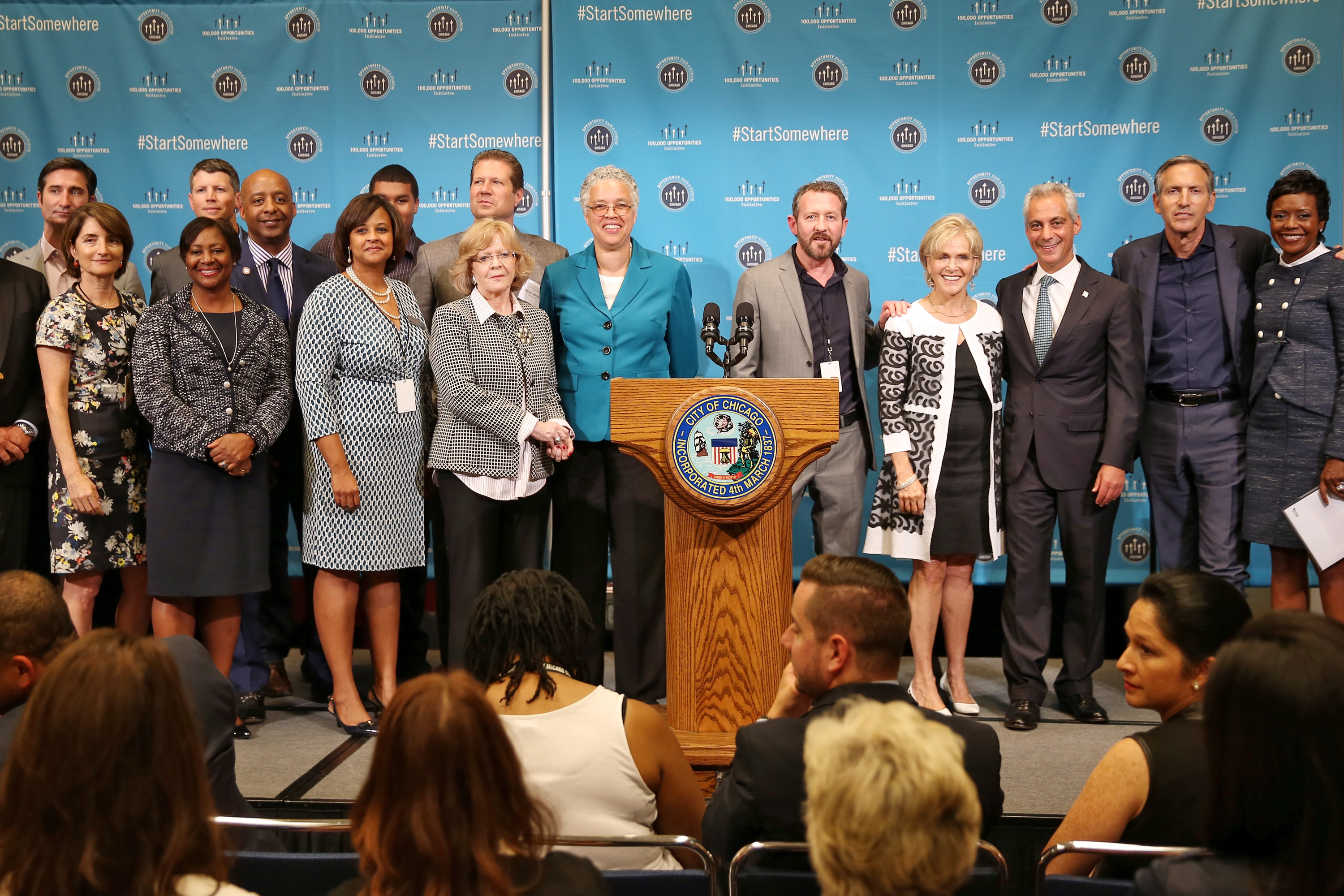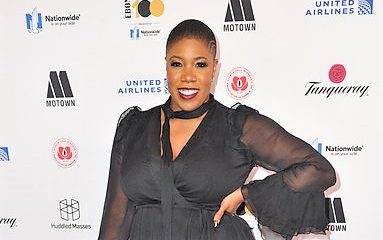Political Science
Corporations Launch New Initiative to Engage America’s ‘Disconnected’ Youth
This summer in Chicago, a coalition of America’s most-recognizable corporations, including Starbucks, CVS, Hilton, JP Morgan Chase, Macy’s, Target and Wal-Mart, participated in the roll out of an ambitious program designed to train more than 100,000 young people between ages 16-24, who face systemic barriers to jobs and education, for jobs and other career opportunities.
The 100,000 Opportunities Initiative was launched with much fanfare, including with a job fair and forum hosted by Grammy and Academy Award-winning performing artist and actor Common, and other events featuring several corporate executives, including Starbucks CEO Howard Schultz.
“This is very personal for me,” said Schultz, who frequently shares the story of his humble beginnings in New York. “I think we have to make a comprehensive all-in commitment…that the country we love, the promise of America, (and) the American dream has to be alive in the future as it was as I was coming through Brooklyn, New York in those projects.”
More than 4,000 youth converged on Chicago’s McCormick Place that day for a job fair, forum and speaker events designed to help young people, particularly black and Hispanic youth, gain much-needed insight into finding a job and a career, which has eluded these groups of Americans in recent years. At the event, participating companies helped train more than 2,000 youth and made about 200 on-the-spot job offers.
“I believe in the talent that lies within our young people, and I know that when we give them a real chance, they will achieve and soar. “Common said. “I am excited to be a part of bringing jobs and opportunities to our great city.”
The initiative was widely applauded, as the number of disconnected youth – that is, young people that are in neither in the workforce or school – is still all too high for politicians and community leaders, and for years pleas have been made for larger programs that address the issue.
Youth employment programs are important because studies have showed that a person’s employment or educational status in their earlier years is important to future career prospects. It is also believed that young people build confidence in their first jobs or secondary-schooling opportunities, which can be predictive of future success. Young people also develop social and emotional skills, which are critical to obtaining and then maintaining jobs.
The number of disconnected youth is a critical labor issue for the U.S. as millions of jobs go unfilled, and some businesses can’t expand because employers can’t find workers with necessary skills. For example, as of this June, there were 5.2 million job openings in the U.S., according to the U.S. Bureau of Labor Statistics. That same month, more than 8 million Americans were seeking work.
Disconnected Youth – By the Numbers
There are more than 5.5 million disconnected youth in America today, or one-in-seven young adults (13.8 percent), equivalent to the population of Minnesota, according to recent research from the Social Science Research Council’s Measure of America project. The study is based on data from U.S. Census Bureau’s 2013 American Community Survey.
There are also key disparities among ethnic groups in terms of their representation of America’s disconnected youth. For example, in 2014, 19 percent of disconnected youth in America were black and 16 percent were Hispanic, according to a Pew Research Center analysis of federal government data. By comparison, only 12 percent of the disconnected youth in America in 2014 were white.
Public, Private Programs Key to Reducing Youth Disconnection
While there have been programs and policies aimed at connecting more youth to school and/or the workforce, none have been large enough to solve the program, researchers say.
Some have pointed to youth programs in Europe, which is facing similar youth disconnection challenges, as examples of the size of the programs needed to address the problem in America.
Such programs include the European Youth Guarantee, which tackles youth unemployment by pooling public and private resources in one support network. Under that initiative, participating European Union countries commit to connecting all young people under 25 with real, high-quality offers for a job, apprenticeship, training, or further education within four months after leaving formal schooling or becoming unemployed. Early results of the program have been are promising, officials say.
Youth jobs and education initiatives such as the 100,000 Opportunities Initiative and others, including the “Grads of Life” awareness campaign, which was launched last year to redefine how companies think about and connect with this population, are critically important to reducing the number of America’s disconnected youth.
Organizers of the “Opportunities” initiative said they will continue encourage new companies to join them in their goal of engaging 100,000 youth by 2018.














